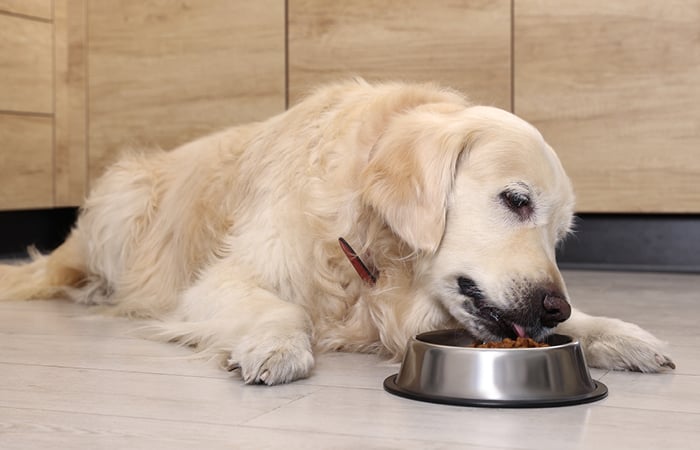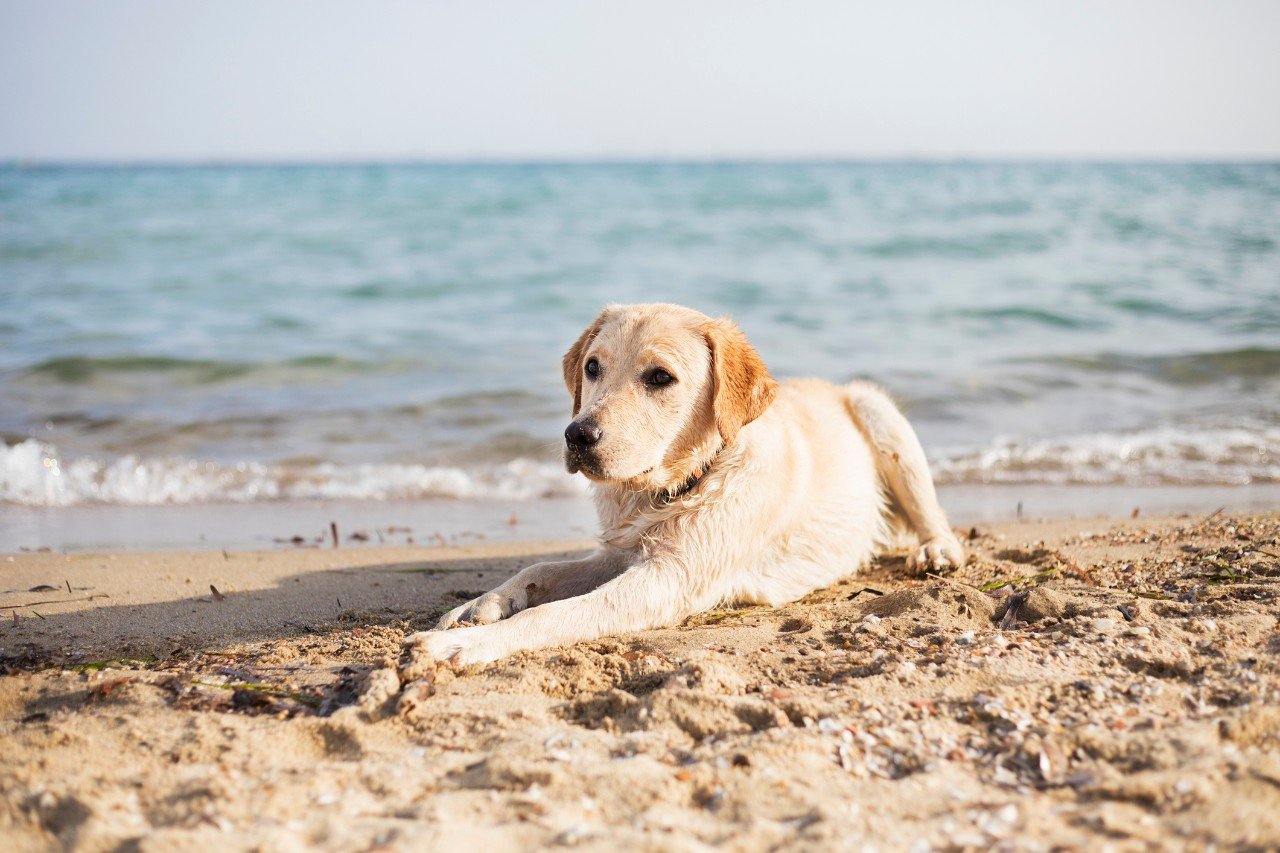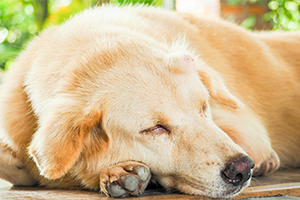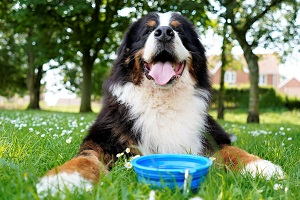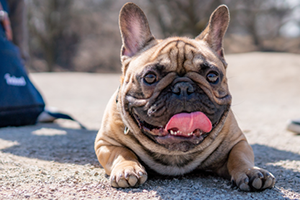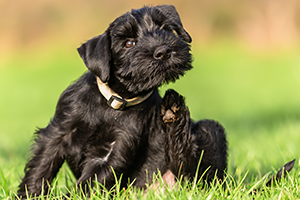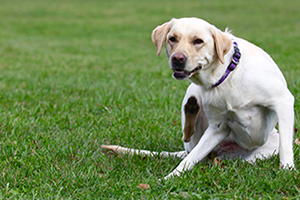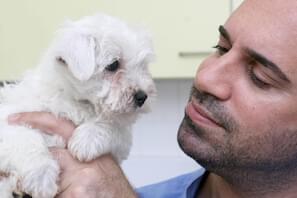Can dogs get sunburn? Essential sun safety advice

Quick Links
After the cold winter months, we all look forward to some summer sunshine. But, heat and sun require dog owners to take some extra precautions to help their canine companions avoid discomfort, sunburn and serious health problems posed by overheating or dehydration.
It's important to always be mindful of how your dog handles the heat, no matter how old they are or what breed they are. While any dog can struggle in the sun, dogs that have double coats (such as German Shepherds), thick fur (such as Border Collies) or flat faces (brachycephalic breeds, such as French Bulldogs) may have more issues regulating their body heat and could be more prone to heat stroke and dehydration. Likewise, dogs that are lighter-coloured or hairless may be more susceptible to sunburn.
Sunstroke in dogs
Sunstroke, which can be lethal, happens when dogs are no longer able to control their body temperature. Just like in humans, sunstroke can take hold very quickly. The symptoms include rapid panting or laboured breathing, very red gums, lethargy and lack of coordination, sometimes accompanied by vomiting and diarrhoea. In severe cases, your dog could even have a seizure.
Prompt action is vital: cool your dog down quickly and safely by moving them out of the heat and dousing them in cool water. Don’t use very cold water, as this can lower their temperature too quickly; instead, dampen their coat using a cool, wet towel. Ideally, use a fan to gently cool the damp fur, and give them small quantities of water to drink. Once you’ve cooled down your dog, it’s vital that they see a vet as soon as possible. Call ahead to let the vet know you’re on your way.
How to keep a dog hydrated and cool
A certain amount of panting is normal in hot weather. Since dogs can’t sweat in the same way we do, panting is their main way of cooling down. When a dog pants, water evaporates from the tongue, which carries excess heat from the body. Because panting uses a lot of water, it’s essential your dog has access a plentiful supply of cool, clean water to drink. When you’re out, carry water with you and give your dog frequent small drinks.
Older dogs, in particular, always need to have water near them, as they may be feeling too hot and bothered to venture far – and bear in mind that their kidneys may not be as efficient at conserving water, making dehydration more of a risk.
In fact, older dogs are more likely to have an underlying chronic condition, such as lung or heart disease, which will make them particularly vulnerable during hot weather, so extra care is required. If you’re at all concerned, phone your vet for advice.
Whatever your dog’s age, it's important to avoid dehydration. Signs of dehydration may include increased thirst, slow movement, reduced skin elasticity, sunken eyes, vomiting or diarrhoea. If their gums and nose are dry instead of wet and cool, these may also be signs of sunstroke.
Do dogs need sunscreen?
Sensible precautions in hot weather
Always make sure there’s a shady spot for your dog in the garden. If it’s very hot, keep them indoors, using a fan if necessary – but don’t allow any sunbathing in front of a window!
Use a cooling mat that your dog can relax on. This will absorb heat from your dog's body and cool them down until they're a more comfortable temperature. The effect tends to last for several hours and many cooling mats don't require electricity, water or refrigeration.
Avoid going out at the hottest time of day, between about 11am and 3pm – instead, walk your dog early in the morning or at night. Discourage any strenuous exercise: the internal heat generated by muscular effort just adds to the warmth and may result in heatstroke.
Never, ever leave a dog alone in a car, even if it’s in the shade. Sadly, dogs do die this way, even though it’s entirely preventable. Also, make sure your vehicle is well ventilated when you’re on a car journey together.
Take a look at this sun safety information sheet that we’ve developed with Battersea Cats & Dogs Home for further advice on summer healthcare.
Petplan is a trading name of Pet Plan Limited (Registered in England No. 1282939) and Allianz Insurance plc (Registered in England No. 84638), Registered office: 57 Ladymead, Guildford, Surrey GU1 1DB.
Pet Plan Limited is authorised and regulated by the Financial Conduct Authority. Financial Services Register No. 311969. Allianz Insurance plc is authorised by the Prudential Regulation Authority and regulated by the Financial Conduct Authority and the Prudential Regulation Authority. Financial Services Register No. 121849. Pet Plan Limited is a subsidiary of Allianz Insurance plc.


